We are committed to promoting a sustainable world
Natural resources are overexploited, the effects of climate change are accelerating and the population is growing exponentially. The world already has more than 8 billion inhabitants, our country DRC has reached 95 million inhabitants.
We are among those who think that the exponential growth of the world population is not the reason to destroy our environment, but a challenge to overcome by implementing techniques which ensure profitability, environmental health, social and economic equity.
In this sense, YOUNECATE-ORG agriculture sector aims to take concrete actions to contribute to the promotion of sustainable agriculture. The sector also aims to inspire people throughout the world, (DRC in particular) to open their minds, and change their attitudes and behaviors towards a more sustainable lifestyle.
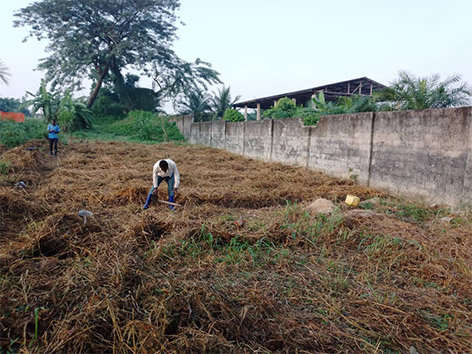
Making our hands dirty for a worthy and global concern
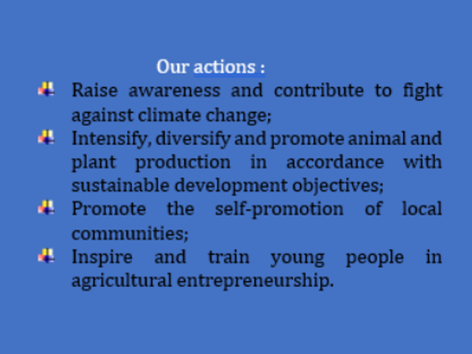
We transform waste into bricks
Plastic waste is almost not biodegradable. Its lifespan is estimated at more than 400 years in the soil and other ecosystems. As it weighs almost nothing, it disperses easily by increasing environmental pollution. For example, plastic pollution on marine animals reduces the biodiversity of oceans and rivers. In the atmosphere, this waste generates greenhouse gases (carbon dioxide, methane, etc.), which also contribute to climate change. Their presence makes it difficult to work the soil and even hinders root penetration, which leads to poor growth of the plant or even its death. Being aware of this danger, we have been recycling plastic waste in the city of Kisangani and transforming it into solid bricks.
This is for the global interest; not only do we contribute to the sanitation of the city and the prevention of diseases, but also to the fight against climate change, the greatest challenge of the day.
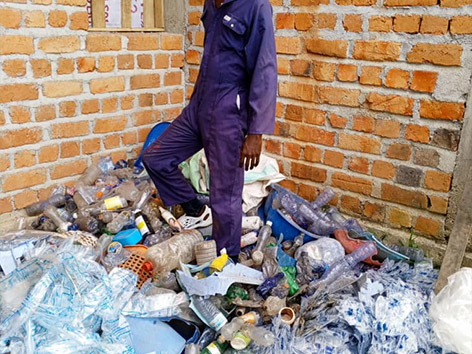
Plastic waste collection
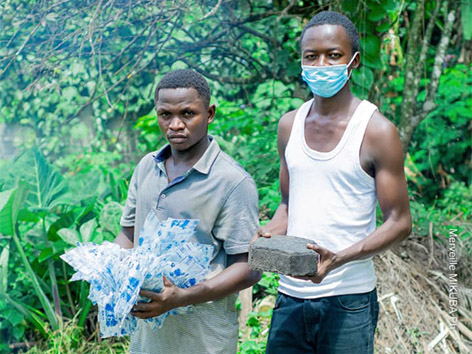
Bricks from waste, ready to use for house construction
We transform organic waste into animal feed
Animal feed relies on limited resources such as fishmeal and soy, creating competition between humans and animals for food. This leads to deforestation, greenhouse gas emissions (methane, CO2), and pollution. Additionally, poor management of animal waste contributes to disease spread. The strain on natural resources results in higher food prices and exacerbates climate change.
Younecate-Org offers an innovative solution to address these challenges: collecting biodegradable household waste and converting it into animal feed through black soldier fly farming. The larvae of these flies, rich in proteins (37-63%), vitamins, and minerals, provide a nutritious alternative for livestock. The organic waste residue after digestion is used as biofertilizer, reducing pollution and promoting sustainable waste management.
This solution enables sustainable animal feeding, reduces organic waste, and limits greenhouse gas emissions. Black soldier fly farming also supports sustainable agriculture through the production of biofertilizers. By valorizing organic waste, Younecate-Org helps improve farmers' income, protect the environment, and enhance food security.
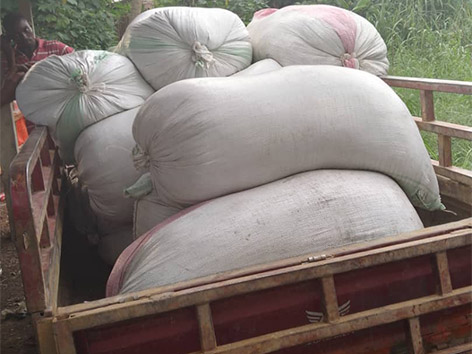
Organic waste collection
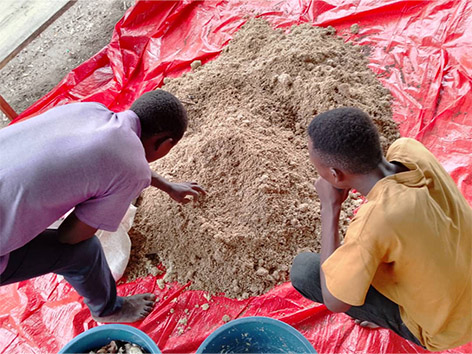
Waste Preparation
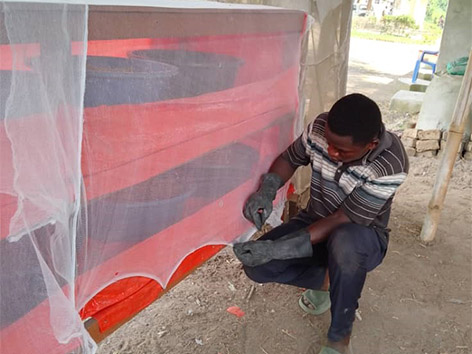
Breeding and Larvae Growth
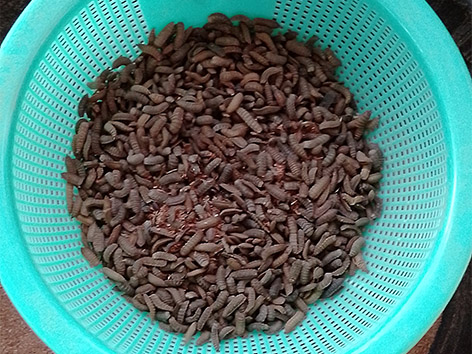
Harvesting and Processing
We train young people to transform waste into wealth
Younecate trains young people to transform biodegradable waste into valuable resources under the guidance of renowned expert Professor Jean Claude Mozenga. Participants learn waste collection, black soldier fly farming, and business development to produce high-protein animal feed and biofertilizers, addressing waste pollution and promoting sustainability.
At the end of the program, all attendees receive certifications, equipping them with skills and credentials to launch sustainable ventures and contribute to environmental and economic solutions
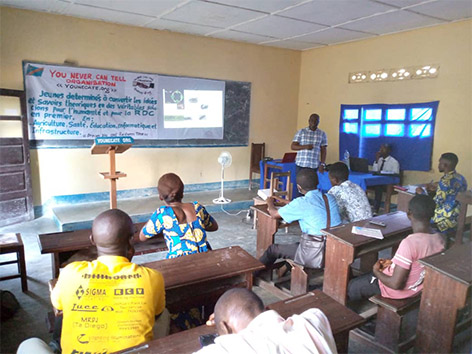
Training with Professor Jean Claude Monzenga

Certification
We Produce Fresh and Healthy Vegetables
Access to quality food remains one of the most pressing global challenges, and Kisangani is no exception. As part of our commitment to contributing to food security and promoting sustainable agriculture, we are thrilled to announce the successful completion of our pilot phase in organic vegetable production.
We grow cabbages (Brassica oleracea var. capitata) and spinach (Spinacia oleracea), using compost as fertilizer. This method not only enriched our soil but also ensured that our crops were grown sustainably.
Our goal of providing fresh, healthy, and organic vegetables to the community at affordable prices has been reached.

Land preparation
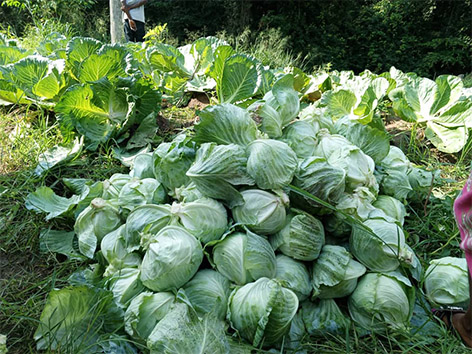
Cabbage production
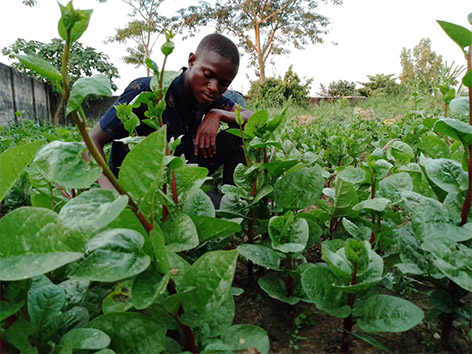
Spinach production
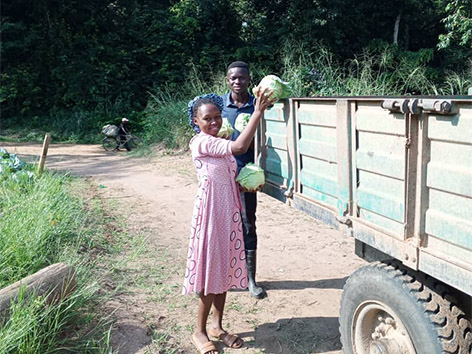
Transportation to the market
Environmental Sensitization: Empowering the Next Generation for a Sustainable Future
As one author said, "Everyone wants a better world, but no one thinks about leaving better children for the world." This highlights a crucial issue: while many aim for a sustainable future, few focus on educating the younger generation about environmental challenges. Preparing them early to be agents of change is essential. Younecate Org has taken the step of directly engaging with students in primary and secondary schools to teach them about waste management. This approach enables us to plant the seeds of sustainability in young minds, involving them in simple, effective practices from an early age.
The impact of this initiative goes beyond the schools. By fostering responsible behaviors in the youth, we help spread these values throughout families and communities. In the long run, this effort contributes to building a sustainable culture that is key to addressing the environmental challenges of tomorrow.




In Ituri, we are fighting against the Cassava Mosaic for Food Security
In the Walendu Pitsi sector in Ituri Province , Younecate is actively combating cassava mosaic, a viral disease that severely reduces crop yields. In recent years, farmers have adopted early-maturing cassava varieties for their short growing cycle, but these are highly vulnerable to the disease. The critical issue is that farmers mistakenly attribute the disease symptoms on cassava leaves to poor soil quality, unknowingly contributing to its spread by using infected cuttings. On June 23, 2024, we organized a pivotal conference to raise awareness among farmers and local authorities about the severity of the disease and the urgency of addressing it. The event also provided training on biological solutions to effectively combat the outbreak.

YOUNECATE actively engages in research, primarily through data collection, to design its own projects. In addition to developing, YOUNECATE extends its research expertise to partner organizations. This includes conducting surveys, focus groups, and assessments on demand mainly in the sector of Education and Agriculture & Environment. Such collaborations may involve NGOs, government bodies, or private sector entities seeking reliable data for feasibility studies, program evaluations, or policy formulation.


